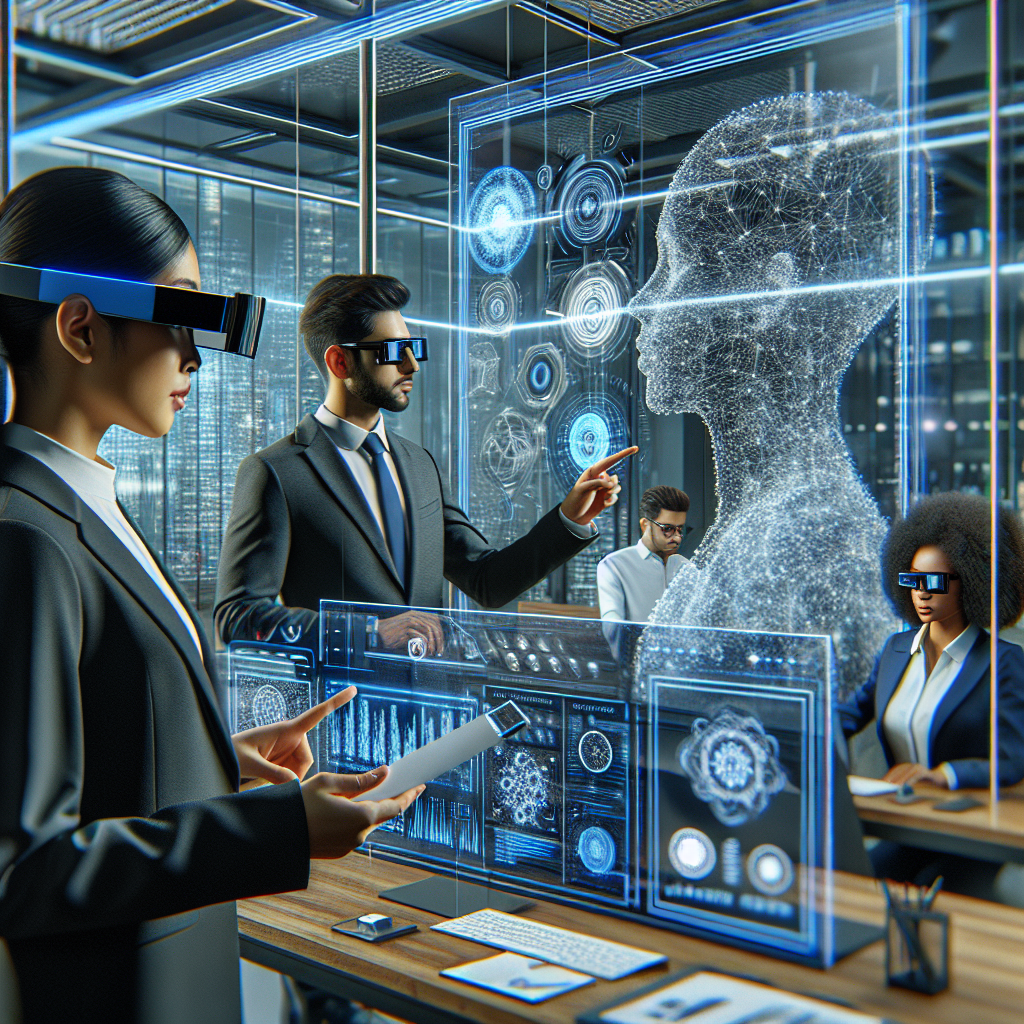The world of work is undergoing a profound transformation, primarily driven by the emergence of Artificial Intelligence (AI). As we move further into the 21st century, white-collar professions are being reshaped in unprecedented ways. The introduction of AI is not merely a trend; it signifies a paradigm shift in how tasks are performed, how decisions are made, and how employees interact with technology. This article delves into the multifaceted impact AI has on white-collar jobs, examining the benefits, challenges, and future implications for workers and organizations alike.
Table of Contents
- Understanding AI in the Workplace
- The Benefits of AI in White-Collar Professions
- Challenges and Risks Associated with AI
- 3.1 Job Displacement
- 3.2 Ethical Concerns
- AI Technologies Transforming White-Collar Work
- Future Trends and Predictions
- Conclusion
Understanding AI in the Workplace
AI encompasses a broad range of technologies that simulate human intelligence, including machine learning, natural language processing, and robotics. Its application in white-collar professions ranges from automating mundane tasks to providing intelligent insights that inform strategic decisions.
According to a report by McKinsey & Company, AI can potentially add $13 trillion to the global economy by 2030, underscoring its transformative potential. Source
The Benefits of AI in White-Collar Professions
Efficiency and Productivity
One of the most significant benefits of AI integration is the increase in efficiency. AI algorithms can automate repetitive tasks significantly faster than human workers. For instance, document processing, data entry, and inventory management can be performed with higher accuracy and speed when delegated to AI systems.
Enhanced Decision-Making
AI tools are adept at analyzing large datasets, offering insights that can inform strategic business decisions. By leveraging advanced analytics, organizations can better understand consumer behaviors, market trends, and operational efficiencies. This leads to more informed decisions and often better outcomes.
Challenges and Risks Associated with AI
While the advantages of AI are manifold, they come with challenges and risks that must be addressed.
Job Displacement
One of the most pressing concerns is job displacement. Roles that involve routine tasks are particularly at risk. A report from the World Economic Forum estimates that by 2025, automation could displace 85 million jobs globally. However, it also projects that 97 million new roles may emerge, necessitating a shift in job skillsets. Source
Ethical Concerns
The rise of AI also raises ethical questions, particularly regarding data privacy and algorithmic bias. It’s imperative that organizations implement frameworks to ensure ethical AI use, promoting transparency and fairness in AI-driven processes.
AI Technologies Transforming White-Collar Work
Automating and enhancing white-collar work requires the integration of various AI technologies.
Robotic Process Automation (RPA)
RPA focuses on automating routine tasks through software robots. Industries like finance, human resources, and customer service are already leveraging RPA to improve efficiency and reduce operational costs.
Natural Language Processing (NLP)
NLP allows machines to understand and interact using human language. This technology enables customer service chatbots, intelligent document analysis, and enhanced communication tools, making interactions seamless.
Future Trends and Predictions
The future of work will likely see the following trends:
- Collaboration Between Humans and AI: As AI systems take on more autonomous roles, humans will shift to tasks that require creativity, emotional intelligence, and interpersonal skills.
- Skill Development: Continuous education and upskilling will become essential as job roles evolve. Organizations will need to invest in training programs to prepare their workforce for the AI-fueled landscape.
- Remote Work Flexibility: AI will enable more sophisticated remote work tools, allowing organizations to tap into global talent.
Conclusion
The integration of AI into white-collar professions is not merely a technological advancement but a revolution in how work is conceptualized and executed. While there are challenges to navigate, the benefits and opportunities that AI presents far outweigh the negatives. Organizations that adapt to this changing landscape will not only survive but thrive in the AI-driven world.
For further insights on how to future-proof your business in this evolving landscape, check out our article on Adapting to Technological Change.
With a proactive approach to embracing AI technologies, white-collar professionals can ensure they remain vital in the workforce of the future.
This article provides a comprehensive look at how AI is reshaping white-collar professions and addresses the opportunities and challenges that lie ahead. For more information and resources, visit our site here.
